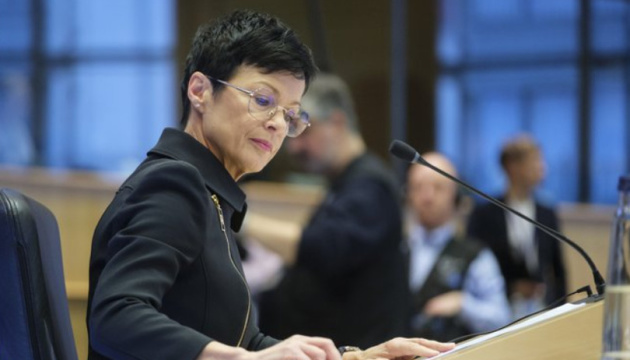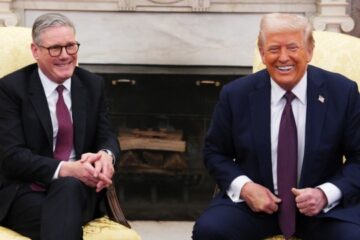
During the EU-Ukraine Association Council meeting, the Ukrainian side reportedly assured the EU that a forthcoming minerals agreement with the United States would not contradict Ukraine’s efforts toward EU membership. At the same time, the European Commission will closely monitor how such an agreement might influence Ukraine’s EU integration process.
European Commissioner for Enlargement and Eastern Neighborhood Marta Kos said this during a press meeting in Brussels organized by the European Newsroom, according to Ukrinform’s correspondent.
Kos explained that candidate countries are free to enter into agreements with any partners, including the United States. While the European Commission welcomed all agreements that align with Ukraine’s best interests, she emphasized that the EU would nonetheless observe the potential implications of the deal on Ukraine’s accession path.
She recalled that during the Association Council, Ukraine’s Prime Minister Denys Shmyhal reaffirmed the government’s commitment to European integration. According to Kos, he made it clear that Ukraine would adhere to this course and would not enter into any agreements that might jeopardize its path toward EU membership.
Regarding external influences on the EU enlargement process, Kos noted that only the European Union itself could lead candidate countries to membership. She said that this was a matter of the EU’s responsibility and credibility, and that it must deliver tangible results without losing any of the candidate countries along the way. However, she acknowledged that the enlargement process had never been so complicated, due to the interference of external powers, and not only from the East.
She pointed to recent Eurobarometer data, which showed that around 90% of Europeans believe the EU should act united in response to global security challenges, and that 74% view EU membership as beneficial personally. Kos said that while past enlargement rounds were not about security, much had changed over the past three months — not only because of Russia’s aggression against Ukraine, but also due to the actions of a country that had been a European ally for 80 years. In her opinion, this shift might ultimately benefit the EU.
She also stressed that while candidate countries are open to foreign investment and have the right to choose their partners, the European Commission would still observe whether European values and principles are upheld in these relationships.
As an example, she referred to Montenegro’s agreement with the UAE, whose investors are planning major financial involvement in the country. According to Kos, the Commission was monitoring the situation, stressing that candidate status came with obligations and consequences.
During the EU-Ukraine Association Council meeting in Brussels on April 9, Prime Minister Denys Shmyhal stated that Ukraine’s future agreement with the United States on joint mineral resource development should remain a partnership and not cross Ukraine’s “red lines,” which include constitutional provisions, European aspirations and commitments, as well as norms of international law.
Photo credit: Thierry Monasse/STA
Source: EU to monitor how Ukraine-US minerals deal affects European integration



